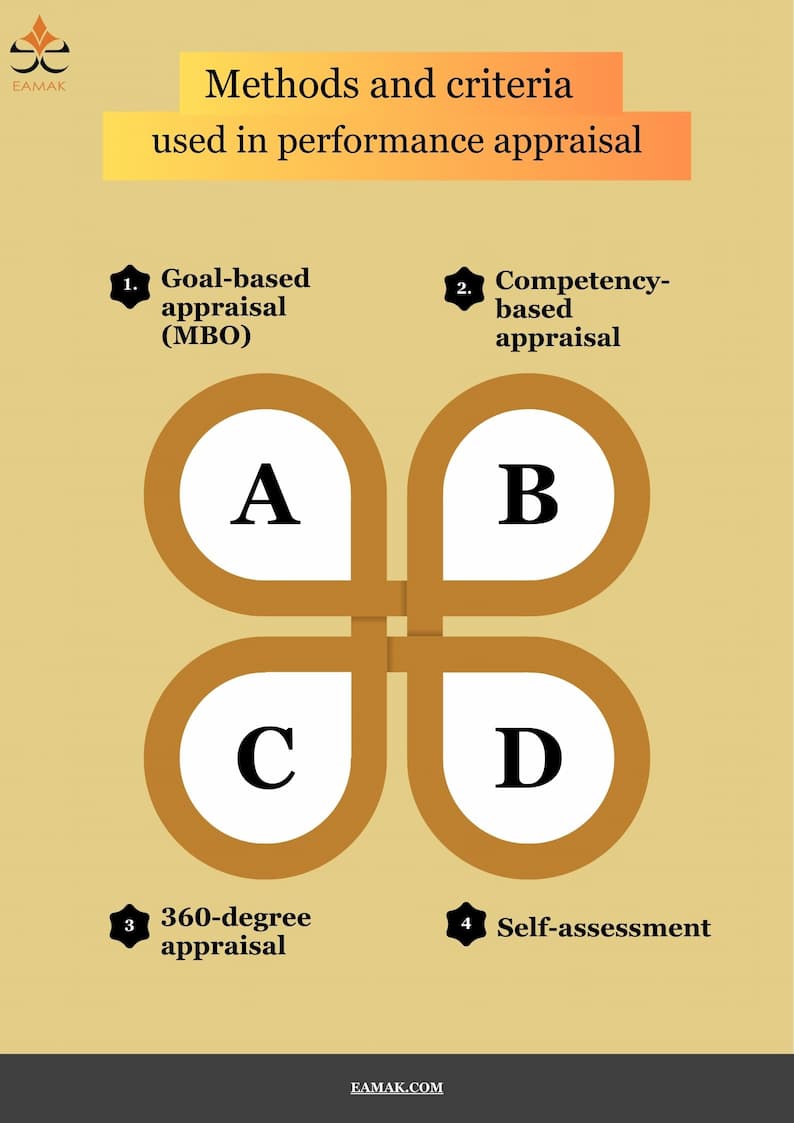Corporate Performance Evaluation Reports are an essential tool to boost efficiency and success
- Posted by:
- Category: Uncategorized

Corporate performance evaluation reports are one of the most important management tools that executives and decision makers rely on to achieve their company’s goals effectively. These reports provide an accurate and comprehensive picture of the performance of individuals, teams, and departments, helping companies identify strengths and opportunities for improvement and ensure that work aligns with overall strategies.
In this article we will discuss the concept of performance evaluation reports for companies, their importance, as well as the most prominent methods and criteria used in performance evaluation
The concept of corporate performance appraisal reports
The concept of corporate performance appraisal reports refers to the systematic process of measuring and reviewing the performance of employees or departments based on predetermined criteria. This process includes analyzing results, comparing actual performance with set goals, and providing feedback to help improve future performance.
The importance of understanding this concept is that it is the cornerstone upon which incentive and reward systems are built, employee professional development, and decisions related to promotions or restructuring are made. Performance appraisal reports are a reliable source for monitoring an organization’s progress towards achieving its vision and mission.
The importance of performance appraisal reports
The importance of performance appraisal reports is highlighted in several key areas that directly affect the sustainability and success of organizations, most notably
- Improving individual and collective performance: By identifying weaknesses and strengths and providing personalized development plans for each employee or team.
- Make decisions based on accurate data: This helps in managing human resources effectively and enhances the strategic planning process.
- Motivate employees and enhance job satisfaction: By linking performance to promotions and rewards fairly and transparently.
- Early detection of organizational issues: This allows management to address them before they escalate and negatively impact productivity.
- Alignment with strategic goals: Reports help monitor performance and ensure it is on track.
At Eamak Management Consulting, we believe that building a strong performance appraisal culture within an organization contributes to creating a healthy work environment that drives everyone to achieve the best results.
Methods and criteria used in performance appraisal
 The methods and criteria used to evaluate performance vary according to the nature of the organization and its goals. Some of the most prominent methods include
The methods and criteria used to evaluate performance vary according to the nature of the organization and its goals. Some of the most prominent methods include
- Goal-based appraisal (MBO): An employee is evaluated based on the extent to which he or she achieves pre-determined goals in collaboration with management.
- Competency-based appraisal: This method focuses on measuring the essential skills and behaviors required by the job.
- 360-degree appraisal: This involves gathering multiple opinions from colleagues, managers, customers, and even subordinates to provide a holistic view of an individual’s performance.
- Self-assessment: The employee evaluates their performance, which encourages accountability and self-development.
As for the criteria, they range from quantitative performance (such as numerical targets or sales volume), qualitative performance (such as work quality or customer service level), as well as organizational behavioral criteria such as commitment, innovation, and teamwork.
Financial methods
Financial methods are one of the main ways to evaluate the performance of companies, and are mainly based on analyzing various financial indicators such as:
- profitability ratio
- Return on Investment (ROI)
- Debt-to-equity ratio
- Cash flow indicators
Using these indicators, companies can assess their financial efficiency and their ability to achieve profits and sustainable growth.
Non-financial methods
Non-financial methods are just as important as financial methods in assessing performance, as these methods focus on aspects that are not directly measurable financially, such as
- customer satisfaction
- level of innovation
- Product or service quality
- Developing internal skills and competencies
Evaluating these factors helps organizations build a long-term competitive advantage. At Eamak, we use a balanced mix of financial and non-financial methods to ensure a comprehensive assessment of a company’s performance.
Steps to prepare performance appraisal reports
The process of preparing performance appraisal reports goes through a series of systematic steps that ensure that the evaluation is objective, fair, and reflects the true picture of performance. These steps include the following
1-Define the strategic objectives of the evaluation
The process begins with understanding the purpose of the report, whether it is for performance improvement, promotion, career development, or reviewing internal policies.
2-Selecting key performance indicators (KPIs)
It is essential to identify measurable indicators that accurately reflect the nature of each department or employee’s work, such as productivity, quality, timeliness, and customer satisfaction rates.
3-Design data collection tools
Questionnaires, assessment interviews, or electronic tracking systems should be set up to collect performance-related data throughout the assessment period.
4-Analyze results
Analyzing performance requires comparing actual data to established goals, looking for positive trends or chronic issues.
5-Drafting the final report
Write the report in an organized manner, including performance evaluation, positive points, opportunities for improvement, and future development plans.
6-Discuss the results with stakeholders
Open a dialog with employees or departments to ensure clarity of results and instill a culture of transparency and continuous improvement.
These steps serve as a roadmap for every organization that aspires to achieve better performance in the long run.
 Valuation standards in the Egyptian and Saudi markets
Valuation standards in the Egyptian and Saudi markets
Valuation standards in the Egyptian and Saudi markets are subject to fundamental differences due to the economic, cultural, and regulatory differences between the two environments.
In Egypt, companies focus heavily on
- Performance against available resources, given the market’s competitive nature with limited resources.
- Adherence to internal operational standards and cost control as focal points.
- Developing management and leadership performance within organizations to achieve greater sustainability.
In Saudi Arabia, the evaluation criteria include modern approaches in line with the national transformation and Vision 2030, such as:
- Focusing on achieving performance indicators related to digital transformation and increasing technical efficiency.
- Evaluating innovation and the ability to adapt to rapid changes in the labor market.
- Paying close attention to achieving sustainable development goals and good governance practices.
The evaluation criteria in the Egyptian and Saudi markets differ based on the economic and cultural environment, making it necessary to customize the evaluation criteria to suit the specificity of each market, taking into account the local trends and unique challenges of each market.
Challenges and opportunities in preparing performance evaluation reports
It is important to understand that there are many challenges and opportunities in preparing performance evaluation reports , for example
Despite the significant benefits, the performance reporting process faces several practical and organizational challenges, most notably
- Personal bias: Some reports may be influenced by managers’ subjective opinions, which affect the accuracy of the evaluation.
- Some qualitative skills are difficult to measure: Such as innovation or teamwork, making the evaluation sometimes based on inaccurate criteria.
- Resistance to change: Some employees may see appraisal as a threat rather than a development tool, reducing their engagement with the process.
- Some organizations lack advanced data systems, making collecting and analyzing performance data a logistical challenge.
However, there are huge opportunities that can be exploited
- Improving the performance culture: By adopting transparent and fair appraisal methods.
- Stimulate the work environment: Continuous feedback builds more committed and creative teams.
- Guide strategic planning: Using evaluation results as a basis for formulating comprehensive and effective development plans.
Challenges should be treated not as obstacles, but as golden opportunities to make sustainable improvements within the work environment.
Best Practices in Performance Appraisal Reporting
Best practices in performance appraisal reporting enhance the credibility and effectiveness of the system within an organization. These best practices include,
- Linking assessment to strategic goals: Performance indicators should be directly linked to the company’s vision and plans, not just day-to-day operational performance.
- Integrate quantitative and qualitative assessment: To achieve a balanced picture of performance, it is important to combine numbers and statistics with behavioral analysis of individual and collective performance.
- Evaluate continuously, not seasonally: Relying on periodic performance reviews, not just an annual assessment, allows for quick intervention when improvement is needed.
- Rely on modern technology: Use digital performance management systems to track performance in real time, increasing accuracy and speed in reporting.
- Training and awareness: Train managers and employees on the importance of objective evaluation and how to use the results to improve performance, not punish it.
Conclusion
In this article, we have thoroughly covered the topic of corporate performance evaluation reports, from the concept and importance to financial and non-financial methods, preparation steps, and local standards, while analyzing the challenges, opportunities, and best practices. Having an effective performance appraisal system has become vital to the success of companies in highly competitive markets.
At Eamak Management Consulting, we help companies build sophisticated performance appraisal systems that take into account global best practices and are customized for each organization.
The difference between an average company and a leading company lies in how it manages its performance.
Don’t leave your company’s future in limbo!
Let the Eamak Management Consulting team accompany you on the journey of building a professional performance appraisal system tailored to your goals and market.
Get in touch with us today and find out how we can help you achieve real and sustainable growth in your business environment.

